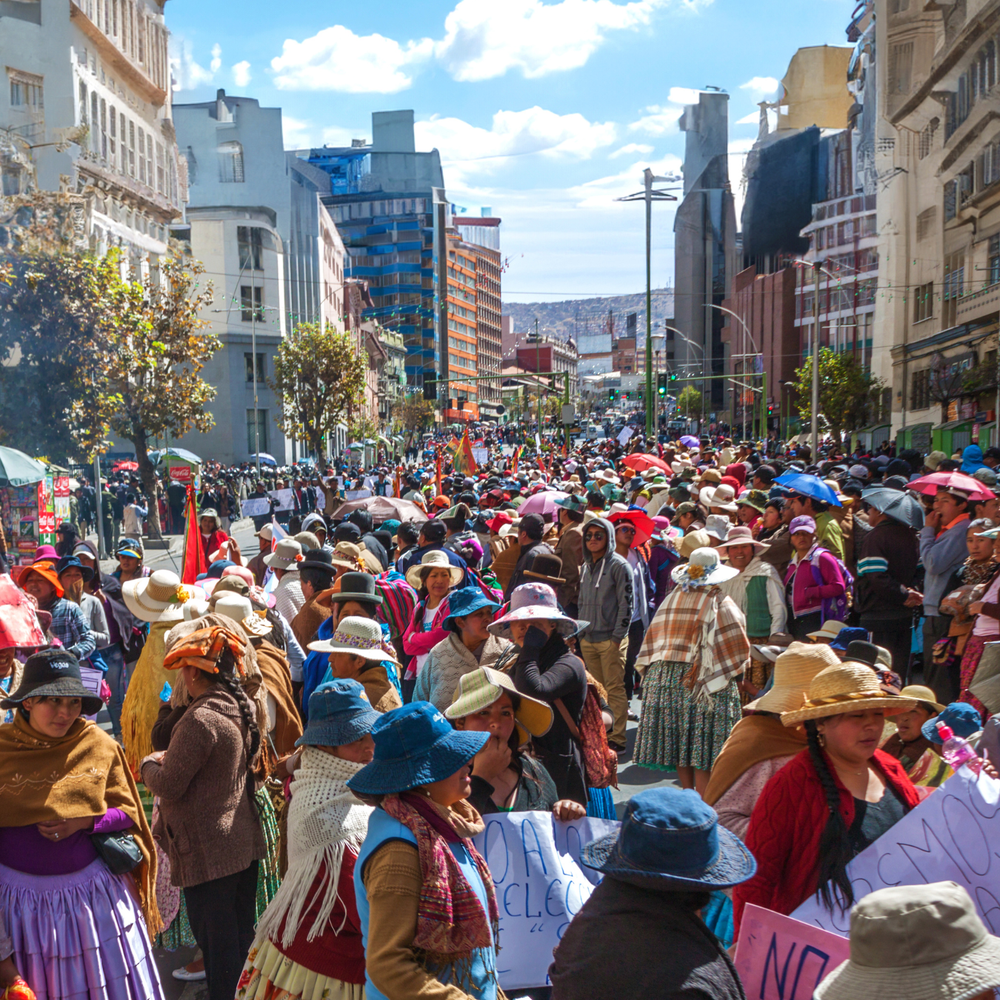Guardians at risk: Confronting corporate abuse in Latin America and the Caribbean

Shutterstock (licensed)

Shutterstock (licensed)
From fighting deforestation and illegal mining in the Amazon to raising concerns about the impacts of megaprojects in Mexico and protecting sacred Indigenous sites in Nicaragua, communities, workers and individuals are courageously protecting their rights and environments across Latin America and the Caribbean. Unfortunately, in doing this important work, they face significant risks.
Latin America and the Caribbean is one of the most dangerous regions in the world for human rights defenders (HRDs). Between January 2015 and December 2022 (inclusive), we identified nearly 2,000 attacks against HRDs in Latin America and the Caribbean, representing 42% of total attacks (4,700) recorded worldwide. These included killings, judicial harassment, death threats, disappearances and other forms of intimidation. Indigenous defenders experience a disproportionately high level of attacks and while defenders of all genders are targeted due to their human rights work, women defenders often face specifically gendered attacks. Given this research is based on publicly available information – and official government data on attacks is extremely limited – the problem is undoubtedly more severe than these figures suggest.
The figures on attacks in our region, while devastating, demonstrate the need to continue advancing comprehensive strategies for the effective protection of those who defend our rights at a very high cost. For each of those people, their communities, our nations, and for the rights of future generations.Viviana Krsticevic, Executive Director, Centre for Justice and International Law (CEJIL)
Key findings:
- 1,976 attacks recorded against human rights defenders raising concerns about business in Latin America and the Caribbean (Jan 2015 - Dec 2022) - making up 42% of total attacks recorded globally.
- Six countries accounted for 86% of attacks in the region: Honduras (353), Mexico (322), Brazil (302), Colombia (267), Peru (252) and Guatemala (209).
- The most dangerous sectors for HRDs are mining, agribusiness, renewable energy, logging and lumber, and oil, gas and coal.
- 28% of attacks recorded were killings.
- 29% of attacks involved judicial harassment
- 35% of attacks were against Indigenous defenders
- 85% of attacks targeted HRDs protecting their land rights and right to a clean, healthy and sustainable environment
The high number of attacks occurs in the context of centuries of colonisation, patriarchy, exploitation of natural resources, denial of rights to land and territories, and racism and discrimination against Indigenous and Afro-descendant Peoples and peasant communities in the region. Structural racism and discrimination are embedded in government policy and practice – and economic interests often take priority over protecting human rights, with a widespread lack of respect for the self-determination and autonomy of Indigenous Peoples and their right to free, prior and informed consent (FPIC). In addition to historically problematic sectors for HRDs such as agriculture and logging, renewable energy and mining – both critical to the global energy transition – feature prominently amongst the most dangerous sectors for defenders in the region.
The scale of lethal and non-lethal attacks against those protecting their rights, natural resources and the environment from business-related harms reveals the failure of governments in Latin America and the Caribbean to fulfil their duty to protect human rights and the insufficiency of voluntary corporate action to respect human rights.
Despite the significant risks HRDs are experiencing in the region, advances in international law and guidance such as the Escazú agreement, the Esperanza Protocol and the upcoming legally binding instrument on business and human rights represent an important opportunity to increase protection of defenders and strengthen access to remedy in the region. In particular, the upcoming Advisory Opinion on Climate Change by the Inter-American Court of Human Rights presents a critical opportunity for the Court to develop standards for states to safeguard HRDs in the context of harmful business operations connected to the climate crisis and recognise core expectations under international law for business actors to protect defenders. In addition, states in Latin America and the Caribbean should adopt legislation recognising the rights of defenders and their vital role in promoting human rights, sustainable development and a healthy environment – and commit to zero-tolerance for attacks.